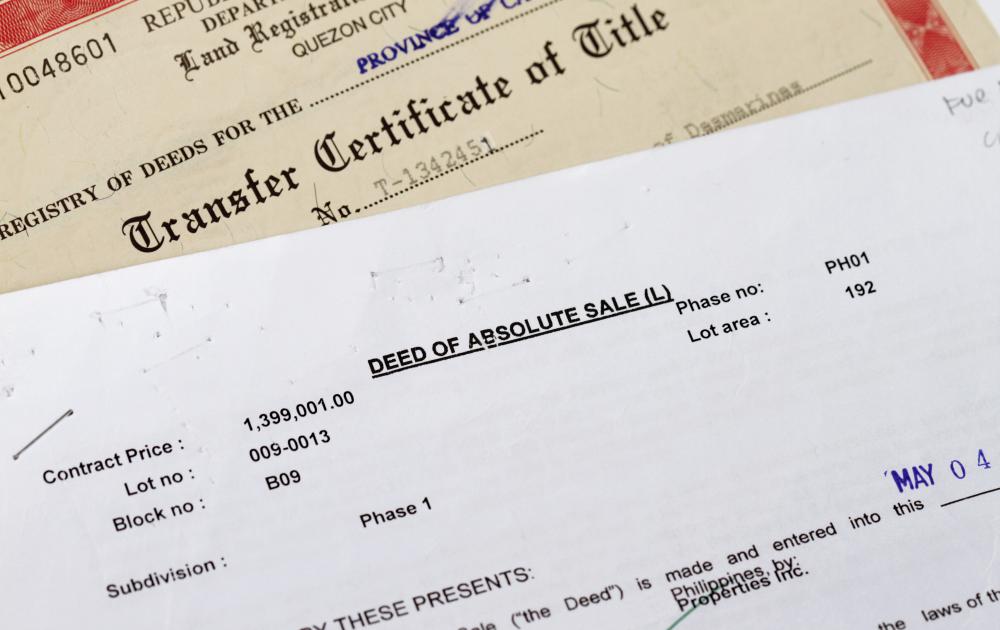At WiseGEEK, we're committed to delivering accurate, trustworthy information. Our expert-authored content is rigorously fact-checked and sourced from credible authorities. Discover how we uphold the highest standards in providing you with reliable knowledge.
What is Land Registration?
Land registration is the mechanism used by many governments to record and establish the ownership of land. Regional statutes govern how land titles are to be registered, which may include the designated government agency providing the landowner with a certificate. Some statutes require the landowners to petition the court in the applicable jurisdiction, which would declare title to the land and establish the right of the petitioner against any future claims to the land. Buyers of real estate often rely on land registrations in order to determine whether the title to property is good and marketable. They can often research public records in the area where the land is located to see whether the title to the land is registered.
Registering a land title is different from recording a deed. When a landowner registers a deed, he is registering the deed itself. The process is often simple because the landowner can obtain the deed through private conveyance and submit it to the recorder of deeds. To register a land title, a landowner is issued a certificate. Under certain acts, like the Torrence Act in the United States, the landowner has to file a claim in court. The purpose is to ask the court to declare that the landowner is the rightful owner of the land and to protect the landowner’s rights against all others.

Many regional governments that once imposed compulsory land registration no longer make it a requirement. Some jurisdictions often require land registration in specific circumstances, such as any time land is sold or if the landowner leases it for an extended period of time. For example, it is not mandatory for a landowner to register land in most jurisdictions in England until he sells it. There are no longer many countries and jurisdictions within countries that have maintained compulsory land registration statutes. Title insurance companies opposed statutes that make registration mandatory, and many landowners complained that the costs to follow the statutes were too cost prohibitive.
Once a certificate is issued, land registration can be a simple and efficient process. The owner often only has to sign the original certificate that was issued and a duplicate copy to make a transfer. Another benefit to land registration is that it can help to reduce the number of land disputes when the court issues a decree. It’s often difficult for parties to overturn a prior court’s ruling that the landowner is the rightful owner and possessor of land.
AS FEATURED ON:
AS FEATURED ON:











Discuss this Article
Post your comments